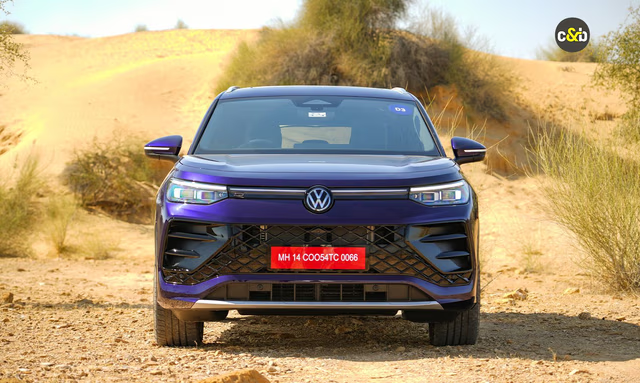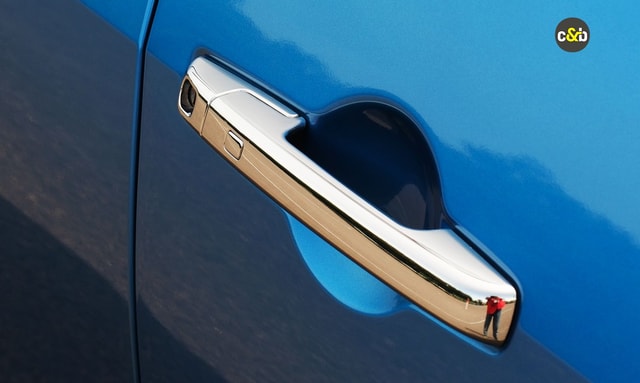Buying Electric Cars Becoming Easier in India?

- Many electric vehicle companies are trying to enter the Indian market
- Indias high import duties have discouraged most of them
- Extension of FAME-II may ease things a little bit

Photo Credit: cdn.pixabay.com
Are the sky rocketing fuel prices compelling you to invest added interest in electric cars and the progress of that industry? You are not alone in that. Not only has the reception to EVs by the general public increased, there has been renewed interest in that sector by venture capitalists and the government too.
We are not talking about Tesla who has been trying to sweet the Indian government for quite some time now to cut import duties by 40-60% across segments for electric vehicles, with the hope that it could finally launch its cars in India. While it is possible that government may make big cuts on import duties in the future, at present, it is still interested in subsidising and incentivising local manufacturers to make their forays into the EV market. But reasons for electric car purchases becoming easier decisions in the recent future are multifold. Take a look.
FAME-II policy extension
At present, the Faster Adoption and Manufacturing of Hybrid and EV scheme (FAME) II scheme benefits covers only electric two-wheelers, three wheelers, four-wheeled passenger vehicles and goods carrying vehicles. Under it, vehicles are provided with demand incentives that help to bring down its purchase price. FAME 2 had increased the benefit offered from Rs 10,000 per kWh to Rs 15,000 per kWh. That's a hike of 50 per cent. Now the government will be extending the policy benefits to even purchase of personal EV vehicles. This is in keeping with government´s expressed interest in the past in becoming less dependent on crude oil imports.
More segments with EV cars

Photo Credit: upload.wikimedia.org
Until now, EVs were mostly either completely budget hatchbacks with low battery range and performance, best suited for sedate city commutes and as a second car at home. Or they were hybrid and mild hybrid luxury cars that only suited the uber-rich. But in 2020-21, this market has opened up. Last year, the Nexon EV was launched and it saw a good reception and sales. This year, we saw the introduction of EVs across different ranges – Tata Tigor Zeptron EV at Rs 11.99 lakhs, MG ZS EV at Rs 20.99 lakhs and Hyundai Kona Electric at Rs 23 lakhs. To be honest, except for the Nexon EV and Tigor Zeptron, the other cars don´t qualify for FAME-II subsidy which is for vehicles below Rs 15 lakhs. But with growing fuel prices, a small section of the upwardly mobile consumer class with a shine for SUVs doesn´t mind looking into electric SUVs with improved performance and range as compared to fuel guzzling SUVs, otherwise. Indeed this is reflected in the sales numbers of the Nexon EV and MG ZS EV. Even the rich have something for their use this year, from the Audi e-Tron to the Mercedes-Benz EQC.
Economies of Scale
Increase in production scale has been the time-honoured way to reduce the price of a new product and this happens only with increased demand and investment in research. And it seems that consumers are finally taking interest in electric vehicles. There has been renewed interest by venture capitalists into investing not only in EV technology, but also its battery technology and infrastructure.
Investment in charging infrastructure

Photo Credit: cdn.pixabay.com
Cost of buying an EV is only one aspect that is pulling back customers. Despite the possibility of incurring much savings on fuel prices, the absence of charging infrastructure while travelling and the resulting inconvenience is a big detriment to the expansion of EVs in the country. Realising this, carmakers have also entered the fray of setting up charging infrastructure in cities, rather than leaving it upto the government to do so. The government, having invested in electric buses for public transportation, is also trying to make it as seamless as possible and that could benefit private cars too.
State-wise policies on EV
In addition to the FAME subsidies, each state has its own criteria for electric vehicle subsidies, which means the benefits are more significant in some regions, bringing EVs closer to being an accessible option for mass-market buyers. Topping the list is Delhi, which offers an incentive of Rs 5,000 per kWh, and a maximum of Rs 30,000 (provided the battery is bigger than 5 kWh). Second on the list currently is Maharashtra, which, too, offers a subsidy of Rs 5,000 per kWh, with the total subsidy capped at Rs 10,000. Meghalaya, Gujarat and Assam too provide similar benefits, capping at Rs 20,000.
Maharashtra, Gujarat and Delhi offer this base incentive to cars as well. But Maharashtra has an additional early bird discount of RS 1 lakh (upto dec 31), which caps the total discount at Rs 2.5 lakh.
Latest News
 Seshan Vijayraghvan | Feb 4, 2026Skoda Kylaq Crosses 50,000 Units Sales MilestoneThe Kylaq has been the brand’s best-selling car, which has led to Skoda Auto India’s best-ever sales performance in 2025.1 min read
Seshan Vijayraghvan | Feb 4, 2026Skoda Kylaq Crosses 50,000 Units Sales MilestoneThe Kylaq has been the brand’s best-selling car, which has led to Skoda Auto India’s best-ever sales performance in 2025.1 min read Seshan Vijayraghvan | Feb 4, 2026Volkswagen Tayron R-Line’s Pre-Bookings Open For Rs. 51,000Customers can pre-book the SUV for a token of Rs. 51,000; however, the price announcement will take place sometime later in February 2026.1 min read
Seshan Vijayraghvan | Feb 4, 2026Volkswagen Tayron R-Line’s Pre-Bookings Open For Rs. 51,000Customers can pre-book the SUV for a token of Rs. 51,000; however, the price announcement will take place sometime later in February 2026.1 min read car&bike Team | Feb 4, 2026Audi India Adds ‘My Auras’ In-Car Experience ModesAvailable for select models, the feature syncs the mood lighting, music, air conditioning, seat heating/ventilation and massage functions based on the selected mode.1 min read
car&bike Team | Feb 4, 2026Audi India Adds ‘My Auras’ In-Car Experience ModesAvailable for select models, the feature syncs the mood lighting, music, air conditioning, seat heating/ventilation and massage functions based on the selected mode.1 min read car&bike Team | Feb 4, 2026Suzuki Access ABS Launched At Rs. 92,328The Suzuki Access ABS is now the most-affordable two-wheeler with single-channel ABS on sale in India.2 mins read
car&bike Team | Feb 4, 2026Suzuki Access ABS Launched At Rs. 92,328The Suzuki Access ABS is now the most-affordable two-wheeler with single-channel ABS on sale in India.2 mins read car&bike Team | Feb 4, 2026Nissan Gravite MPV India Debut On February 17Set to be underpinned by Renault-Nissan’s CMF-A platform, the Gravite will share its underpinnings with the Renault Triber.1 min read
car&bike Team | Feb 4, 2026Nissan Gravite MPV India Debut On February 17Set to be underpinned by Renault-Nissan’s CMF-A platform, the Gravite will share its underpinnings with the Renault Triber.1 min read car&bike Team | Feb 3, 2026China Mandates Fitting of Mechanical Door Handles On New Cars From 2027Vehicles already on sale to be given an additional 2 years to conform to the new norms.2 mins read
car&bike Team | Feb 3, 2026China Mandates Fitting of Mechanical Door Handles On New Cars From 2027Vehicles already on sale to be given an additional 2 years to conform to the new norms.2 mins read
 Bilal Firfiray | Feb 4, 2026Volkswagen Tayron R-Line Review: Sensible Flagship For IndiaVolkswagen has introduced a made-in-India flagship SUV that offers space, comfort, performance, and German driving finesse in a practical three-row package. But is the Tayron R-Line good enough?6 mins read
Bilal Firfiray | Feb 4, 2026Volkswagen Tayron R-Line Review: Sensible Flagship For IndiaVolkswagen has introduced a made-in-India flagship SUV that offers space, comfort, performance, and German driving finesse in a practical three-row package. But is the Tayron R-Line good enough?6 mins read Preetam Bora | Feb 2, 2026TVS NTorq 150 Road Test Review: Bigger, Better & More Efficient!We test the new TVS NTorq 150 out in the real world to get a sense of what it offers in terms of performance, dynamics and fuel economy.7 mins read
Preetam Bora | Feb 2, 2026TVS NTorq 150 Road Test Review: Bigger, Better & More Efficient!We test the new TVS NTorq 150 out in the real world to get a sense of what it offers in terms of performance, dynamics and fuel economy.7 mins read Bilal Firfiray | Jan 21, 2026Tata Punch Facelift Review: New Turbo Engine; Same Old SoulWith the update, the Tata Punch facelift retains its character of being a healthy runabout, which is perfect for Indian roads. But have these changes made it any better?7 mins read
Bilal Firfiray | Jan 21, 2026Tata Punch Facelift Review: New Turbo Engine; Same Old SoulWith the update, the Tata Punch facelift retains its character of being a healthy runabout, which is perfect for Indian roads. But have these changes made it any better?7 mins read Amaan Ahmed | Jan 17, 2026Bajaj Chetak C25 First Ride Review: Basic, Likeable E-Scooter For First-Time RidersThe Chetak C25, in quite a few ways, is poles apart from the larger and more powerful 30 and 35 Series models, but in its mannerisms, it is very much a Chetak.8 mins read
Amaan Ahmed | Jan 17, 2026Bajaj Chetak C25 First Ride Review: Basic, Likeable E-Scooter For First-Time RidersThe Chetak C25, in quite a few ways, is poles apart from the larger and more powerful 30 and 35 Series models, but in its mannerisms, it is very much a Chetak.8 mins read Bilal Firfiray | Jan 9, 2026Toyota Urban Cruiser Hyryder: 10,000 km Long-Term ReviewAfter spending over three months and 10,000 km with the Toyota Urban Cruiser Hyryder Hybrid, we were impressed by its real-world mileage, seamless hybrid, practical comfort, and Toyota reliability. Is it the best C-SUV then?5 mins read
Bilal Firfiray | Jan 9, 2026Toyota Urban Cruiser Hyryder: 10,000 km Long-Term ReviewAfter spending over three months and 10,000 km with the Toyota Urban Cruiser Hyryder Hybrid, we were impressed by its real-world mileage, seamless hybrid, practical comfort, and Toyota reliability. Is it the best C-SUV then?5 mins read



























































































































